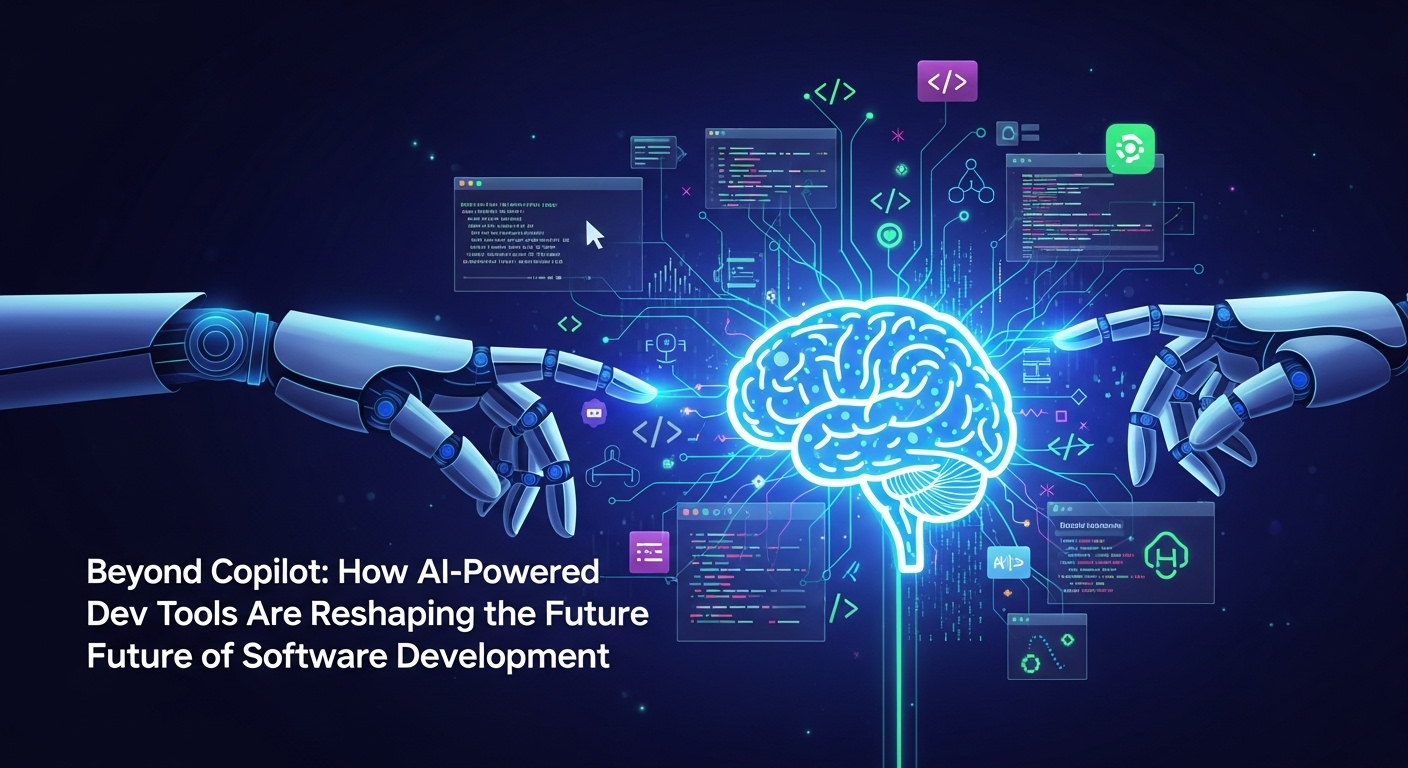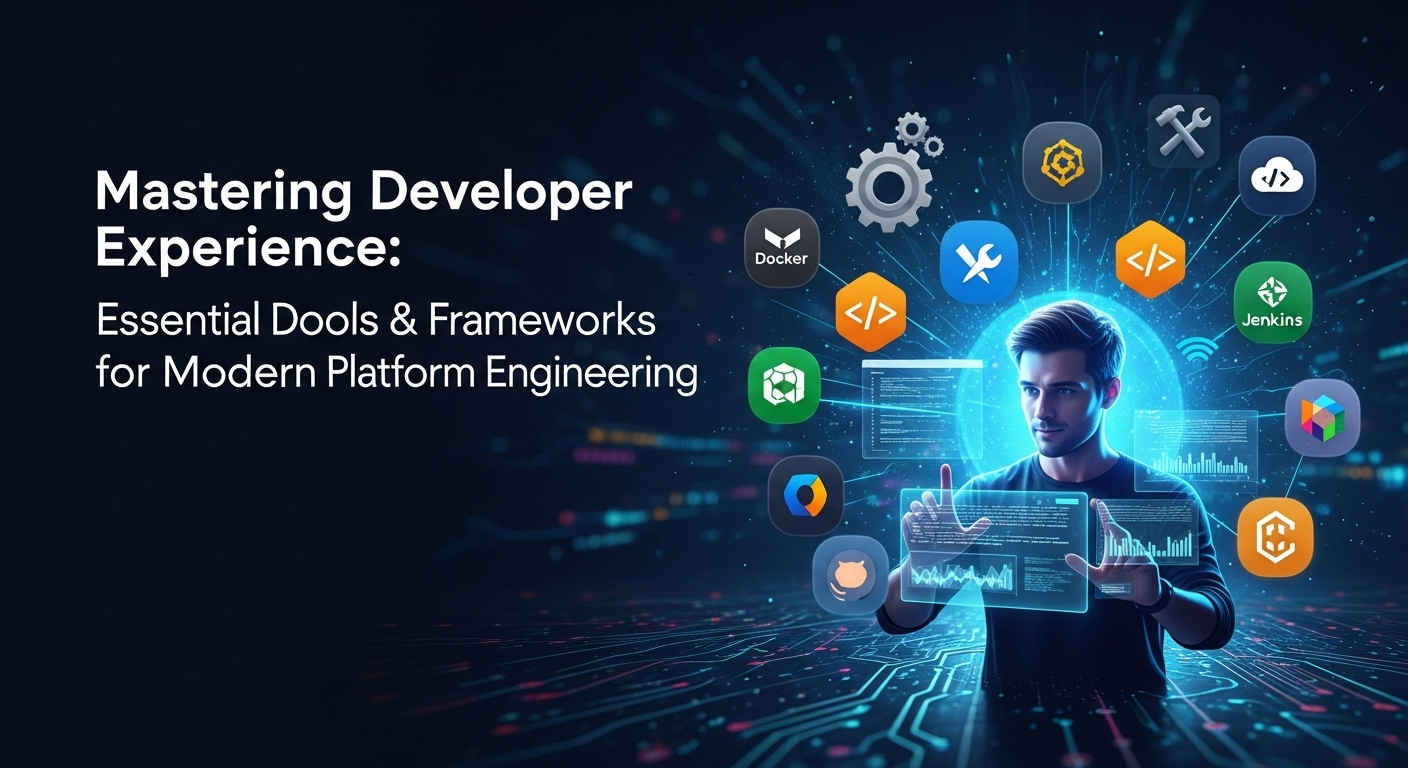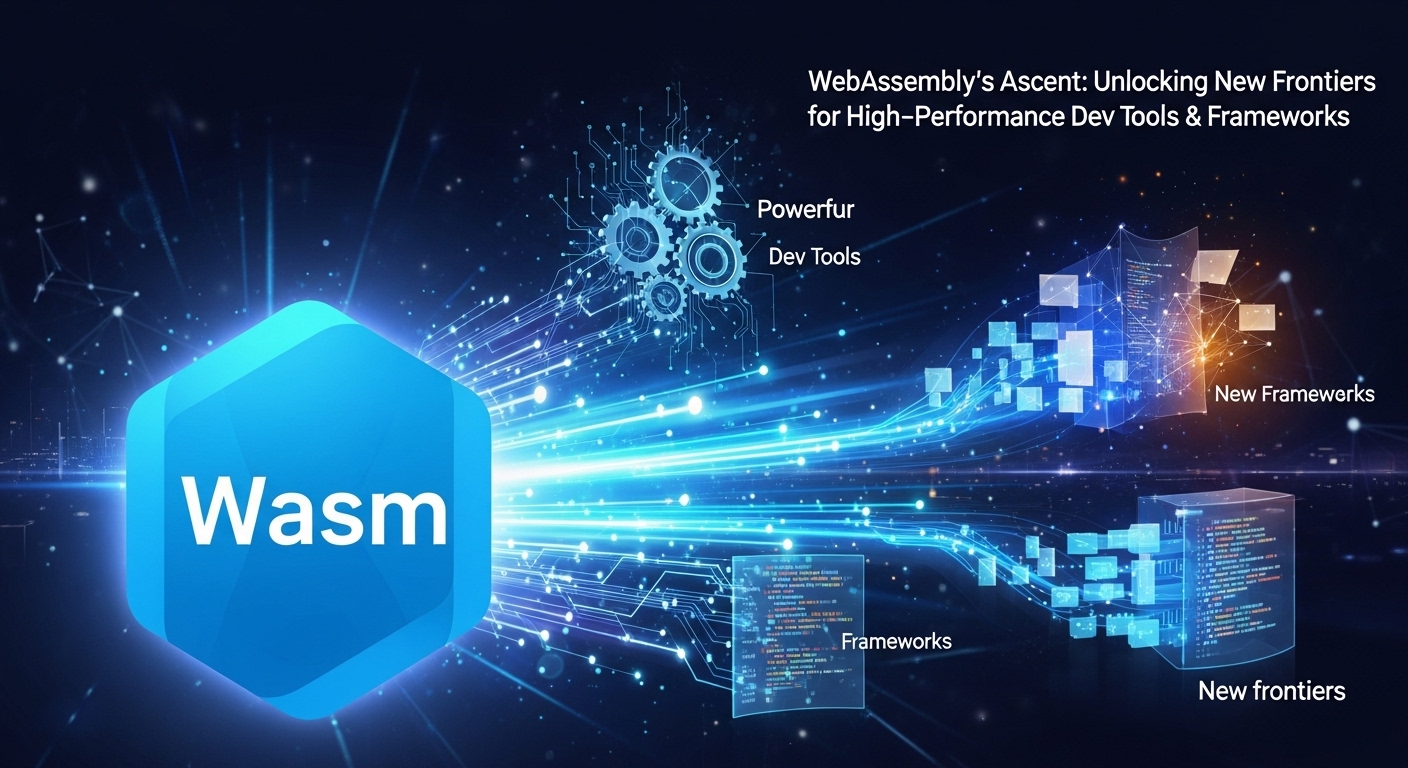The AI Revolution in Coding: More Than Just Autocomplete
If you’re a developer, you’ve almost certainly heard of, used, or at least debated the merits of GitHub Copilot. It landed like a meteor, changing the way many of us write code. The idea of an AI pair programmer that suggests entire functions based on a simple comment felt like science fiction just a few years ago. But Copilot, as revolutionary as it is, is just the tip of the iceberg. It represents the first mainstream wave of a much larger tsunami of AI-powered dev tools & frameworks poised to completely reshape the software development lifecycle.
The initial excitement around AI autocomplete was understandable. It addresses a common pain point: boilerplate code and repetitive syntax. However, thinking of AI’s role in development as merely a souped-up IntelliSense is like looking at a smartphone and only seeing a calculator. The real transformation is happening at a much deeper level, moving from syntax to semantics, from line-level suggestions to project-wide architectural awareness.
The Limitations of First-Generation AI Assistants
Tools like the early versions of Copilot are masters of local context. They excel at analyzing the current file, understanding the immediate functions, and predicting the next logical lines of code. This is incredibly useful for speeding up day-to-day tasks. But their limitations become apparent when dealing with complex, multi-file projects.
- Lack of Holistic Understanding: They often lack a comprehensive view of the entire codebase, its dependencies, and its architectural patterns. This can lead to suggestions that are locally correct but globally inconsistent.
- Superficial Debugging: While they can spot simple syntax errors, they struggle with complex logical bugs that span multiple modules or services. They don’t truly ‘understand’ the developer’s intent.
- Repetitive Suggestions: They can sometimes get stuck in a loop, offering suggestions that don’t evolve with the developer’s changing thought process, requiring careful and specific prompting to break free.
These aren’t criticisms meant to diminish their value, but rather to frame them as a starting point. The future lies in tools that overcome these limitations, acting less like a parrot on your shoulder and more like a seasoned architect reviewing your blueprints.
Key Players and Innovations Beyond Copilot
The market for AI-powered dev tools is exploding. While GitHub Copilot, now powered by more advanced models, continues to evolve, a new generation of specialized and comprehensive tools is emerging. These tools target different, often deeper, aspects of the development process.
Intelligent Code Generation and Refactoring
This is the space most people are familiar with, but the capabilities are rapidly advancing. Tools are becoming ‘codebase-aware,’ meaning they can ingest and understand your entire project repository.
- Sourcegraph Cody: Cody is designed to understand your entire codebase. You can ask it questions like, “How is user authentication handled in this project?” or “Where is the API endpoint for processing payments defined?” It can then generate code that respects your existing patterns and conventions, making it a powerful tool for both new and experienced developers navigating large, unfamiliar projects.
- Amazon CodeWhisperer: A strong competitor to Copilot, CodeWhisperer offers real-time code suggestions and, crucially, includes a reference tracker that can flag suggestions that resemble open-source training data, helping teams manage license compliance.
- Tabnine: One of the earlier players, Tabnine has always focused on privacy and personalization. It allows teams to train its AI models on their own private repositories, ensuring that code suggestions are highly relevant and proprietary code never leaves their environment.
AI-Powered Debugging and Testing
Writing code is only half the battle. Debugging and testing are where countless hours are spent. AI is stepping in to be a formidable ally in this fight.
- CodiumAI: This tool focuses specifically on code integrity. It analyzes your code and automatically generates meaningful tests, from unit tests to integration tests. This helps developers ensure their code is robust and reliable without the manual toil of writing extensive test suites. It’s like having a QA engineer embedded in your IDE.
- Sentry AI: Sentry, a popular error-tracking platform, has integrated AI to help developers debug faster. Its AI can analyze stack traces, identify the root cause of an issue, and suggest a fix, turning a cryptic error message into an actionable solution.
- MutableAI: This tool uses AI to accelerate development through a suite of features, including generating entire features from prompts, refactoring complex code, and, importantly, creating documentation and tests to match.
From Code to Deployment: AI in the Full DevOps Lifecycle
The influence of AI doesn’t stop at the IDE. It’s being integrated into the entire CI/CD pipeline and beyond, optimizing workflows from commit to deployment.
- GitLab Duo: GitLab is building a suite of AI features, collectively known as Duo, that assist throughout the DevOps lifecycle. This includes code suggestions, vulnerability explanations, merge request summaries, and even assistance in resolving CI/CD pipeline failures.
- Harness: This CI/CD platform uses AI to automate canary deployments and rollbacks. It analyzes performance and quality metrics in real-time, automatically promoting a release if it’s healthy or rolling it back if it detects an issue, preventing bad deployments from reaching users.
The Real-World Impact on Developer Workflow
These new dev tools & frameworks aren’t just about writing code faster; they’re fundamentally changing what it means to be a developer. The focus is shifting from manual execution to strategic direction.
Boosting Productivity and Reducing Cognitive Load
Developers can now offload tedious tasks like writing boilerplate, generating tests, or hunting for a bug’s root cause. This frees up immense mental bandwidth. Instead of spending hours trying to understand a legacy function, a developer can simply ask an AI assistant to explain it. This allows them to focus on higher-level challenges: system design, user experience, and complex problem-solving.
Enhancing Code Quality and Consistency
AI tools can act as ever-vigilant guardians of code quality. They can be trained on a team’s specific coding standards and best practices, ensuring that all contributed code, whether from a senior architect or a junior developer, maintains a high level of consistency. They can identify anti-patterns, suggest performance optimizations, and flag potential security vulnerabilities before they ever get to a code review.
Navigating the Challenges and Ethical Considerations
This brave new world is not without its challenges. As we integrate these powerful tools, we must also be mindful of the potential pitfalls.
- Code Ownership and IP: Who owns AI-generated code? What are the licensing implications if the AI was trained on a vast corpus of open-source code? These are complex legal questions that the industry is still grappling with.
- The Risk of Over-Reliance: There’s a genuine concern that leaning too heavily on AI could lead to skill atrophy. If junior developers never have to struggle through debugging a complex issue on their own, will they develop the deep problem-solving skills that define a senior engineer?
- Security and Hallucinations: AI models can ‘hallucinate,’ producing code that looks plausible but is subtly and dangerously flawed. An AI might suggest a code snippet with a hidden security vulnerability, which a developer under a tight deadline might accept without sufficient scrutiny. Rigorous code reviews and security scans remain absolutely essential.
Conclusion: Embrace Your New AI Teammate
GitHub Copilot kicked the door open, showing the world a glimpse of the future. The tools that are following it are building a whole new house. The era of the lone coder is evolving into an era of human-AI collaboration. These AI-powered dev tools are not here to replace developers; they are here to augment them, to make them more creative, more productive, and more focused on solving real-world problems.
The key is to view them not as a crutch, but as a new class of powerful teammate. Learning to prompt effectively, critically evaluate AI suggestions, and leverage these tools to their full potential is rapidly becoming a core competency for the modern software engineer. The future of development isn’t about writing code line-by-line; it’s about architecting systems and guiding intelligent agents to bring those visions to life. It’s time to look beyond Copilot and explore the incredible ecosystem of tools that are defining the next generation of software development.


